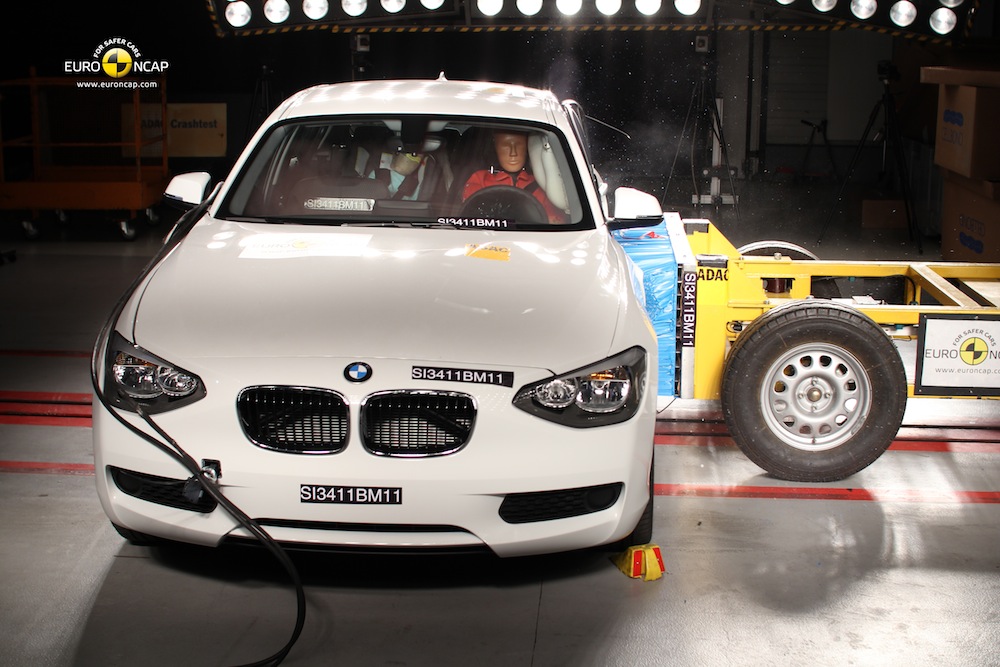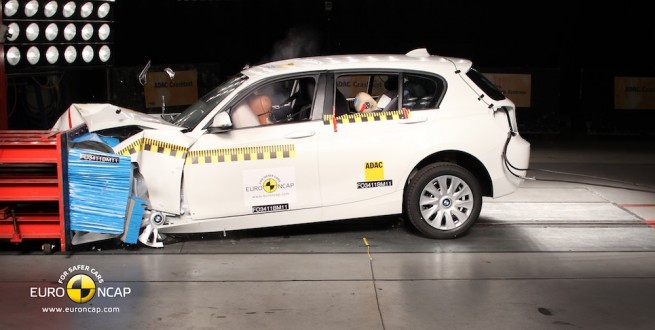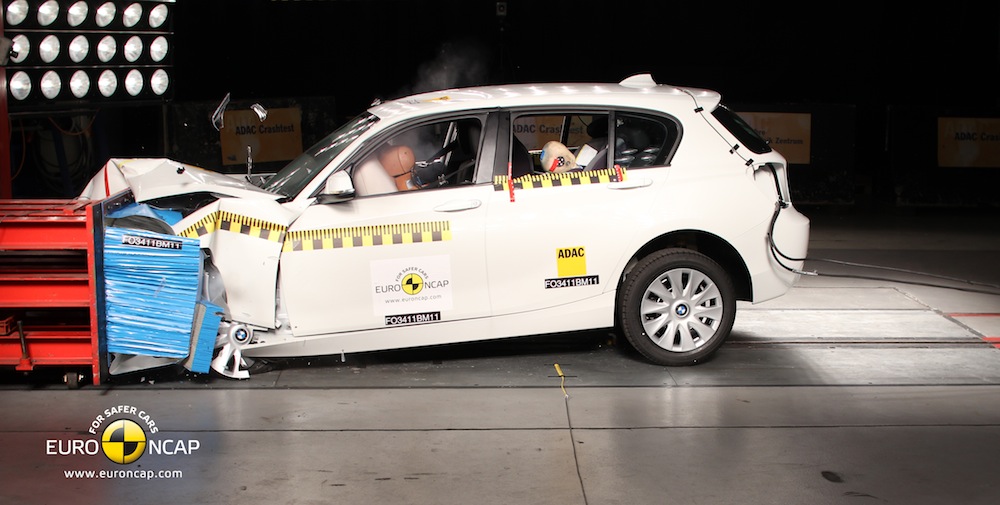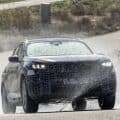The new 2012 BMW 1 Series scored 5 Starts in the Euro NCAP crash test. The 1 Series scored high, 91%, in the passenger compartment remaining stable in the frontal impact.
The 1 Series scored maximum points for protection of the 3 year infant, and an overall 83% for child occupant protection.
In pedestrian safety, the entry-level BMW scored 63%.
Below are some of the findings are reported by Euro NCAP.
Adult occupant
The passenger compartment remained stable in the frontal impact. Dummy readings showed good protection of the knees and femurs of driver and passenger. BMW showed that a similar level of protection would be provided for occupants of different sizes and to those sat in different seating positions. In the side barrier test, the car provided adequate protection for the chest and good protection for other body areas. In the more severe side pole test, dummy readings of rib compression indicated weak protection for the chest area. The front seats and head restraints provided marginal protection against whiplash injuries in the event of a rear-end collision.
Child occupant
Based on dummy readings in the frontal and side impacts, the 1 Series scored maximum points for protection of the 3 year infant. Forward movement of that dummy in the frontal impact was not excessive and, in the side impact, both dummies were properly contained within the shells of their restraints, minimising the likelihood of dangerous head contacts. A switch is available as an option which allows the passenger airbag to be disabled, allowing a rearward facing restraint to be used in that seating position. Information provided to the driver about the status of the airbag does not meet Euro NCAP’s requirements. The dangers of using a rearward facing seat in that position without disabling the airbag are clearly explained in a permanently-attached label.
Pedestrian
In all areas likely to be struck by a child’s head, the bonnet offered good protection and the car scored maximum points for this part of the assessment. For an adult’s head, protection was predominantly poor, although some areas tested were good. The bumper offered good protection to pedestrians’ legs in all areas, and scored maximum points. However, the front edge of the bonnet was poor and scored no points.
Safety assist
Electronic stability control is standard equipment on the 1 series and met Euro NCAP’s test requirements. A seatbelt reminder is provided for the driver, passenger and rear positions. A speed limitation device is available as an option but did not meet Euro NCAP’s fitment requirements, so was not assessed.
Frontal Impact takes place at 64 Km/h, 40% of the width of the car striking a deformable barrier. In the side impact, a mobile deformable barrier impacts the driver’s door at 50 km/h. In the pole test, the car tested is propelled sideways at 29km/h into a rigid pole.










































































